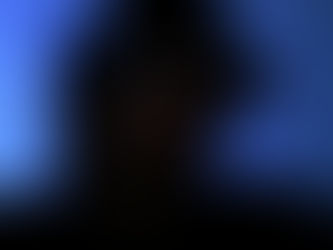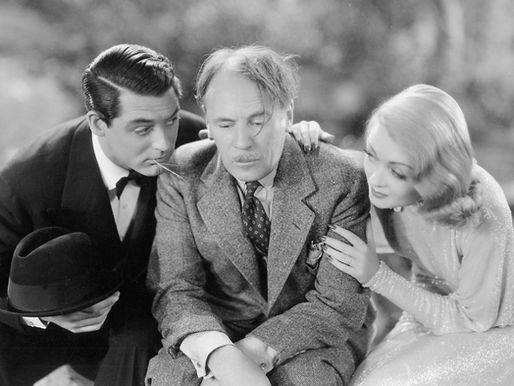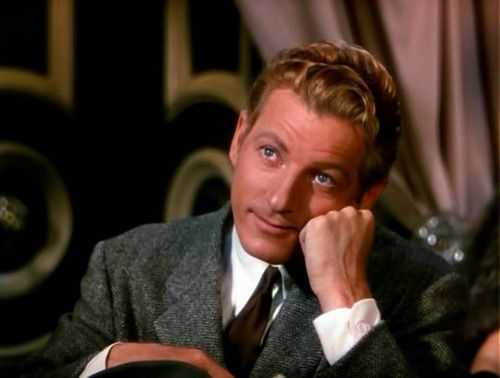top of page
Search
Sci Fi - Fantasy
Classic Science Fiction or Fantasy Films from 1930 - 1999


The Final Countdown (1980)
The Final Countdown is a high-concept science fiction thriller with a military twist: What if a modern American aircraft carrier were transported back in time to the eve of the attack on Pearl Harbour?

Soames Inscker
5 min read


Red Dawn (1984)
Released during the height of Cold War anxiety, Red Dawn (1984) is an unapologetically jingoistic and militaristic fantasy in which the United States becomes the battleground for World War III. Directed by John Milius—a man known for his bombastic, patriotic filmmaking style—Red Dawn imagines a Soviet-led invasion of the American heartland and follows a group of high school students turned guerrilla fighters resisting the occupation.

Soames Inscker
4 min read


Star Trek III: The Search for Spock (1984)
Star Trek III: The Search for Spock is a transitional chapter in the original Star Trek film series—a direct sequel to The Wrath of Khan (1982) and the bridge to The Voyage Home (1986). Directed by Leonard Nimoy, marking his debut behind the camera, the film continues the saga with a more introspective tone, focusing on themes of friendship, sacrifice, rebirth, and the consequences of technological ambition.

Soames Inscker
5 min read


Superman III (1983)
Superman III is the third entry in the original Superman film series, and by far the most divisive. Released in 1983 and directed solely by Richard Lester—who had completed the second film after Richard Donner's departure—it steers sharply into comedic territory, diluting the mythic and emotional tone of the earlier films in favour of slapstick, satire, and an awkward tech-paranoia subplot.

Soames Inscker
5 min read


Tron (1982)
Tron (1982) is a visually ground-breaking science fiction film that transported audiences inside a computer system unlike anything seen before on screen. Though it was met with modest box office success and mixed reviews upon release, its reputation has only grown over time, recognized today as a cult classic and one of the most influential entries in the cyberpunk and digital fantasy subgenres.

Soames Inscker
5 min read


Superman 2 (1980)
Superman II is widely regarded as one of the finest superhero films of the pre-Batman (1989) era and a landmark in the evolution of comic book adaptations. Serving as a direct sequel to Richard Donner’s Superman: The Movie (1978), this follow-up deepens the emotional core of its predecessor while raising the stakes with new antagonists—General Zod and his fellow Kryptonian criminals.

Soames Inscker
5 min read


Loguns Run (1976)
Logan’s Run (1976) is a landmark of 1970s science fiction cinema—an ambitious, visually inventive, and thematically rich dystopian adventure. Released a year before Star Wars, it arrived at the tail end of an era when sci-fi was used not to thrill with action, but to provoke thought. Set in a future society where youth is preserved and death comes by design at the age of 30, Logan’s Run explores hedonism, social control, and the search for authenticity in a sterile, controlle

Soames Inscker
5 min read


The Omega Man (1971)
The Omega Man (1971) is the second and perhaps most culturally emblematic adaptation of Richard Matheson’s influential novel I Am Legend. Starring Charlton Heston at the peak of his post-Planet of the Apes career, the film blends dystopian science fiction, action thriller, Cold War paranoia, and a touch of countercultural sentiment.

Soames Inscker
5 min read


Barbarella (1968)
Barbarella (1968) is a psychedelic, erotic, and often absurd space opera that defies traditional cinematic classification. Directed by Roger Vadim and starring Jane Fonda in one of her most iconic and polarizing roles, the film adapts Jean-Claude Forest’s French comic strip into a freewheeling, surreal exploration of science fiction, sexual liberation, and pop-art aesthetics.

Soames Inscker
5 min read


The Time Machine (1960)
George Pal’s The Time Machine (1960) is a landmark in cinematic science fiction and one of the most enduring film adaptations of H.G. Wells’ literature. With its elegant blending of philosophical inquiry, imaginative visuals, and Cold War–era anxieties, this adaptation reimagines Wells’ 1895 novella as both a thrilling time-travel adventure and a contemplative warning about humanity’s future.

Soames Inscker
4 min read


The War of the Worlds (1953)
Paramount’s The War of the Worlds (1953) is a landmark in mid-century science fiction cinema. Loosely adapted from H.G. Wells’ seminal 1898 novel, this Cold War-era interpretation directed by Byron Haskin and produced by George Pal reinvents the classic alien invasion narrative for a post-WWII American audience.

Soames Inscker
4 min read


Flash Gordon (1936)
Flash Gordon (1936), directed by Frederick Stephani and produced by Henry MacRae, stands as one of the most iconic science fiction serials in film history. Based on Alex Raymond’s comic strip, the 13-chapter Universal serial starred Buster Crabbe as Flash Gordon, Jean Rogers as Dale Arden, Frank Shannon as Dr. Hans Zarkov, and Charles Middleton as the sinister Emperor Ming the Merciless.

Soames Inscker
3 min read


Star Trek II: The Wrath of Khan (1982)
Star Trek II: The Wrath of Khan is not just a landmark within the Star Trek franchise—it is widely considered one of the greatest science fiction films of all time. Released in 1982, this second instalment in the film series resurrected the waning cinematic fortunes of Star Trek after the lukewarm reception of Star Trek: The Motion Picture (1979).

Soames Inscker
5 min read


Star Trek: The Motion Picture (1979)
When Star Trek: The Motion Picture premiered in December 1979, it arrived with the immense burden of expectation. Riding the wave of sci-fi popularity in the wake of Star Wars (1977), and propelled by the enduring cult success of the original Star Trek television series (1966–69), Paramount envisioned a grand cinematic rebirth for Gene Roddenberry’s universe.

Soames Inscker
5 min read


The Andromeda Strain (1971)
The Andromeda Strain is a taut, cerebral science fiction thriller that brought a new kind of realism to the genre in the early 1970s. Adapted from Michael Crichton’s breakout 1969 novel and directed by Robert Wise—already well-established from films like The Day the Earth Stood Still and West Side Story—this film stands apart from its contemporaries with a tone of cold precision and scientific authenticity.

Soames Inscker
5 min read


The Day the Earth Stood Still (1951)
Few science fiction films of the 1950s have had the enduring cultural, philosophical, and cinematic impact of The Day the Earth Stood Still. Released during the height of Cold War anxiety and directed with precision and restraint by Robert Wise, this film broke new ground by fusing speculative science fiction with sharp social commentary.

Soames Inscker
4 min read


A Nightmare on Elm Street (1984)
A Nightmare on Elm Street (1984) is more than just another slasher film. It’s a psychologically potent blend of supernatural terror, teen vulnerability, and imaginative horror that transformed the genre and introduced one of cinema’s most iconic villains: Freddy Krueger.

Soames Inscker
5 min read


The Nutty Professor (1963)
The Nutty Professor (1963) is not only one of Jerry Lewis’s most iconic films but also a defining work in American comedy. Co-written, directed by, and starring Lewis, the film serves as a loose parody of Robert Louis Stevenson’s Strange Case of Dr. Jekyll and Mr. Hyde, filtered through Lewis’s unique brand of slapstick, pathos, and satire. It blends outlandish physical humour with a surprisingly poignant story about identity, self-esteem, and the cost of conformity.

Soames Inscker
5 min read


Topper (1937)
Released during the golden era of screwball comedy, Topper (1937) stands apart thanks to its inventive blending of fantasy and farce. Based on the 1937 novel by Thorne Smith, Topper is a whimsical tale of ghosts, liberation, and high-society satire that paved the way for later supernatural comedies like Blithe Spirit and Ghost and Mrs. Muir.

Soames Inscker
5 min read


The Secret Life of Walter Mitty (1947)
Based (very loosely) on the 1939 short story of the same name by James Thurber, The Secret Life of Walter Mitty was transformed for the screen into a vehicle tailored to the immense talents of comedian, singer, and impressionist Danny Kaye. While Thurber's original story is a brief and dryly ironic portrait of a henpecked man escaping reality through heroic daydreams, the film adaptation expands the narrative into a full-blown Technicolor adventure, romantic comedy, and music

Soames Inscker
4 min read
bottom of page


